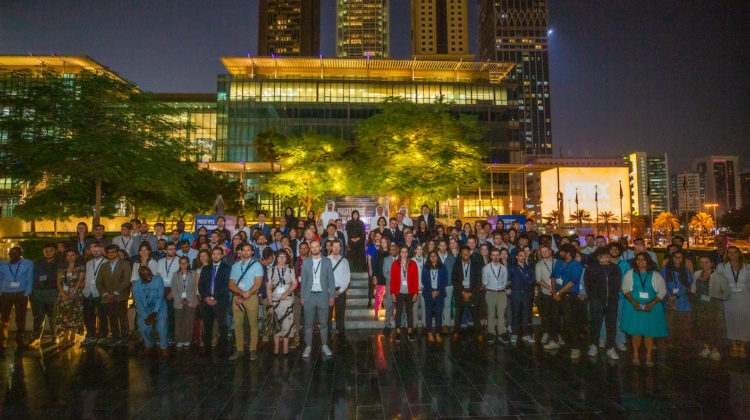
Prototypes for Humanity, an initiative developed by the Art Dubai Group that brings together the best innovations to come out of graduate projects around the world, has announced the winners of its inaugural award.
Offering prizes worth US$100,000, the award aims to champion academic excellence in critical areas for sustainable development, recognising four projects that each receive US$25,000 for their work in the fields of environment, health, society and corporate solutions.
According to the organisers, the programme, which evolved from the design-centric Global Grad Show exhibition, brings together trailblazing ideas, projects and technologies that address critical challenges affecting us all. Through a wealth of input from first-rate academic work, Prototypes for Humanity acts as a magnifying glass, raising awareness of global problems while celebrating solutions and impact-driven actions that have the power to solve them. Having grown into a multidisciplinary platform beyond the showcase, the initiative is now equally concerned with real-life implementation.
Using a series of programmes and activities, Prototypes for Humanity aims to celebrate and advance ideas for positive social and environmental impact. Built around a gathering of academic talent from all over the globe, along with their 100 respective innovations, the initiative claims to be the most diverse assembly of impact-driven innovations, affirming its mission to catalyse change and its belief in the power of academia and alliances to accelerate change.
The winners of the first-ever award were:
Health: FormaCyte, a revolutionary implant for type 1 diabetes management developed by Nam Tran, Chi Pham and Chen Yang of Nanyang Technological University, Singapore.
Society: AkoFresh, a solar-powered cold-storage solution aimed at reducing post-harvest loss developed by Mathias Charles Yabe, Dhruvika Sosa and Arina Machine of Kwame Nkrumah University of Science and Technology, Kumasi, Ghana.
Environment: Aerostat, a smart helium-filled balloon for early forest-fire detection developed by Merve Kalan of Middle East Technical University, Turkey.
Corporate solutions: Carbon Capture Battery, a solution to generate energy while capturing carbon developed by Mohammad Saghafifar and Seyed Mojtaba Hashemi of the University of Cambridge, UK.
‘Prototypes for Humanity closely aligns with Dubai’s ambitious vision and its commitment to empowering a creative and an innovation-embracing community,’ said Her Highness Sheikha Latifa bint Mohammed bin Rashid Al Maktoum, the initiative’s patron. ‘In light of the global challenges we constantly face, it is time to unite efforts and utilise our creativity to address these issues and build a better future for the world. I am highly confident in the capabilities of the participating students to foster a better and more sustainable tomorrow.’
‘When considering significant societal problems, like pollution or illiteracy, we see how they are systemic issues, but with very tangible manifestation all around us,’ said Tadeu Baldani Caravieri, director of Prototypes for Humanity. ‘By looking at the solutions proposed by researchers from around the world, we can imagine a model that addresses these challenges in the reverse order, from the micro to the macro. Academia can clearly resolve most of the technical, concrete facets of pollution and illiteracy, for example. What we want to investigate through the Prototypes for Humanity programme is how to mobilise a consortium of organisations that can onboard these innovations and tackle these problems at a macro level, on a global scale, together.’
More information about Prototypes for Humanity and the winners of the inaugural award can be found here.


